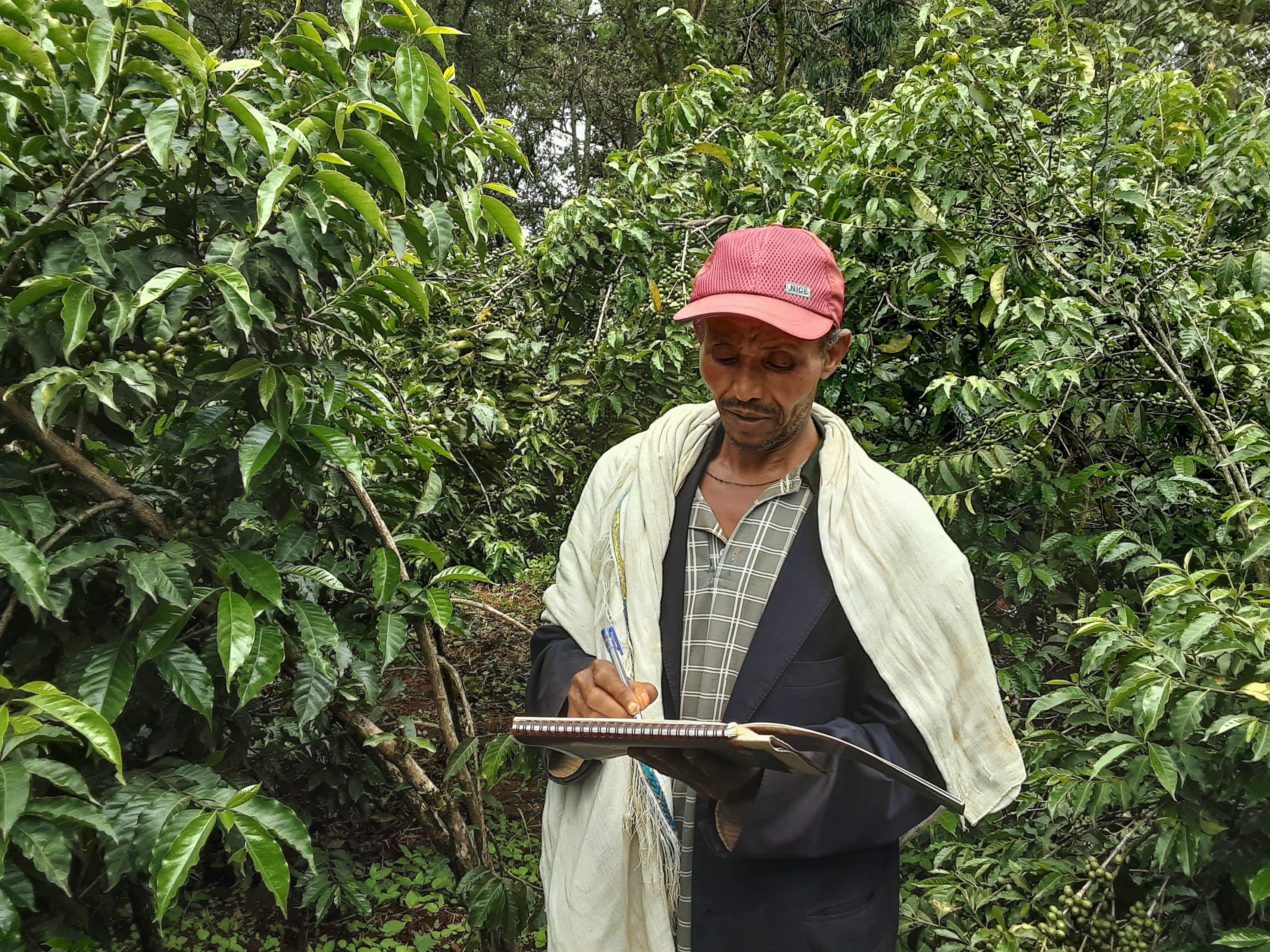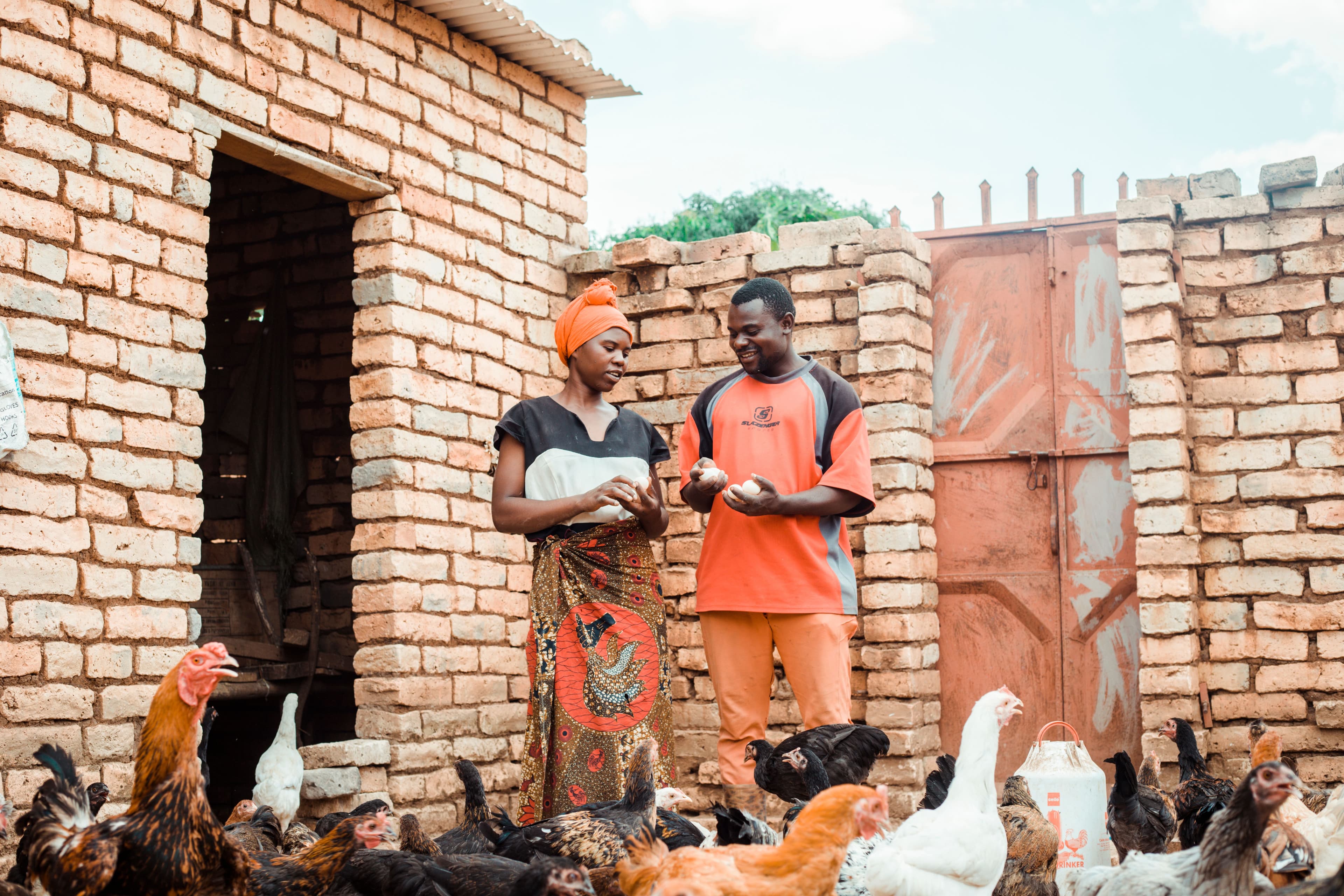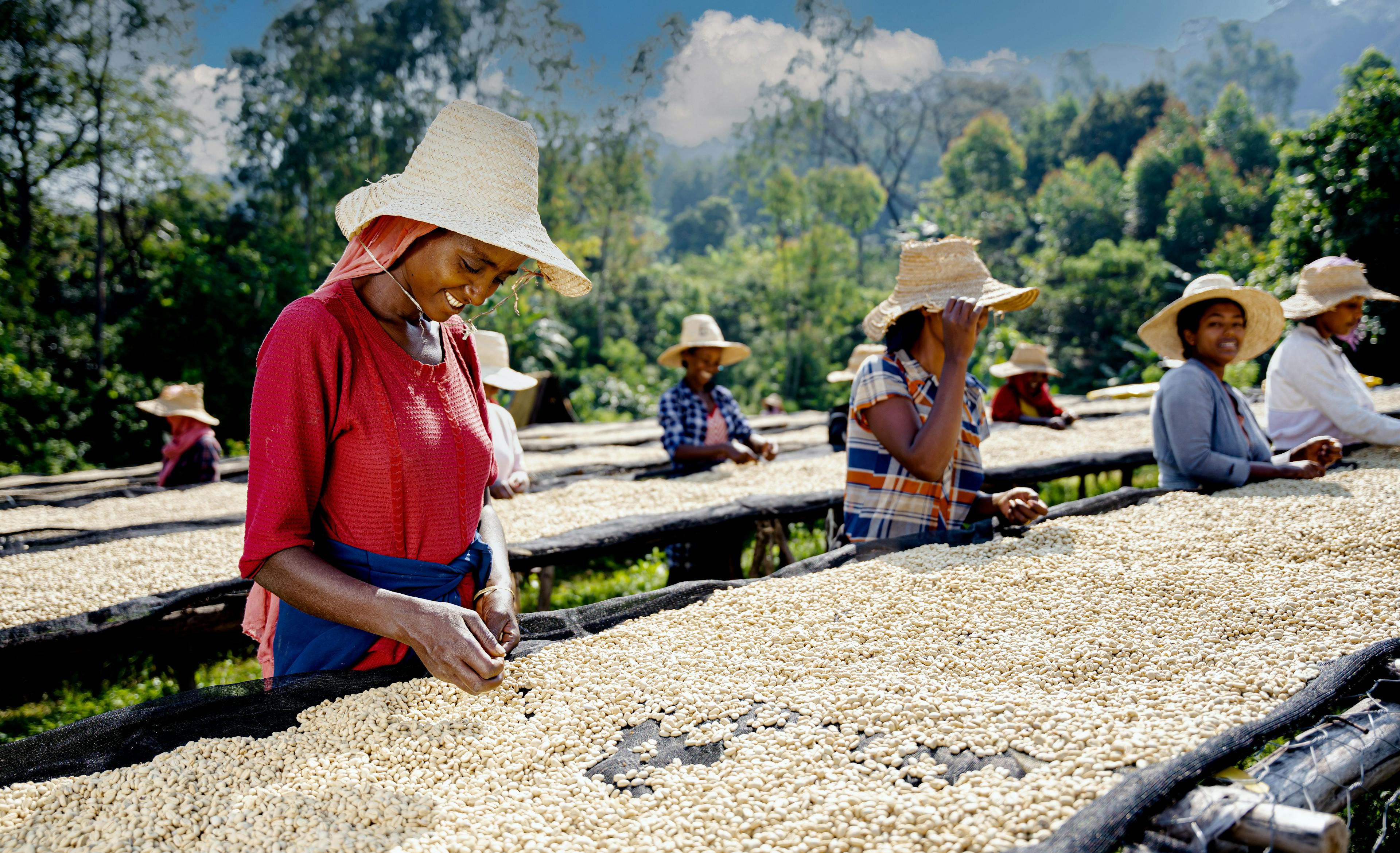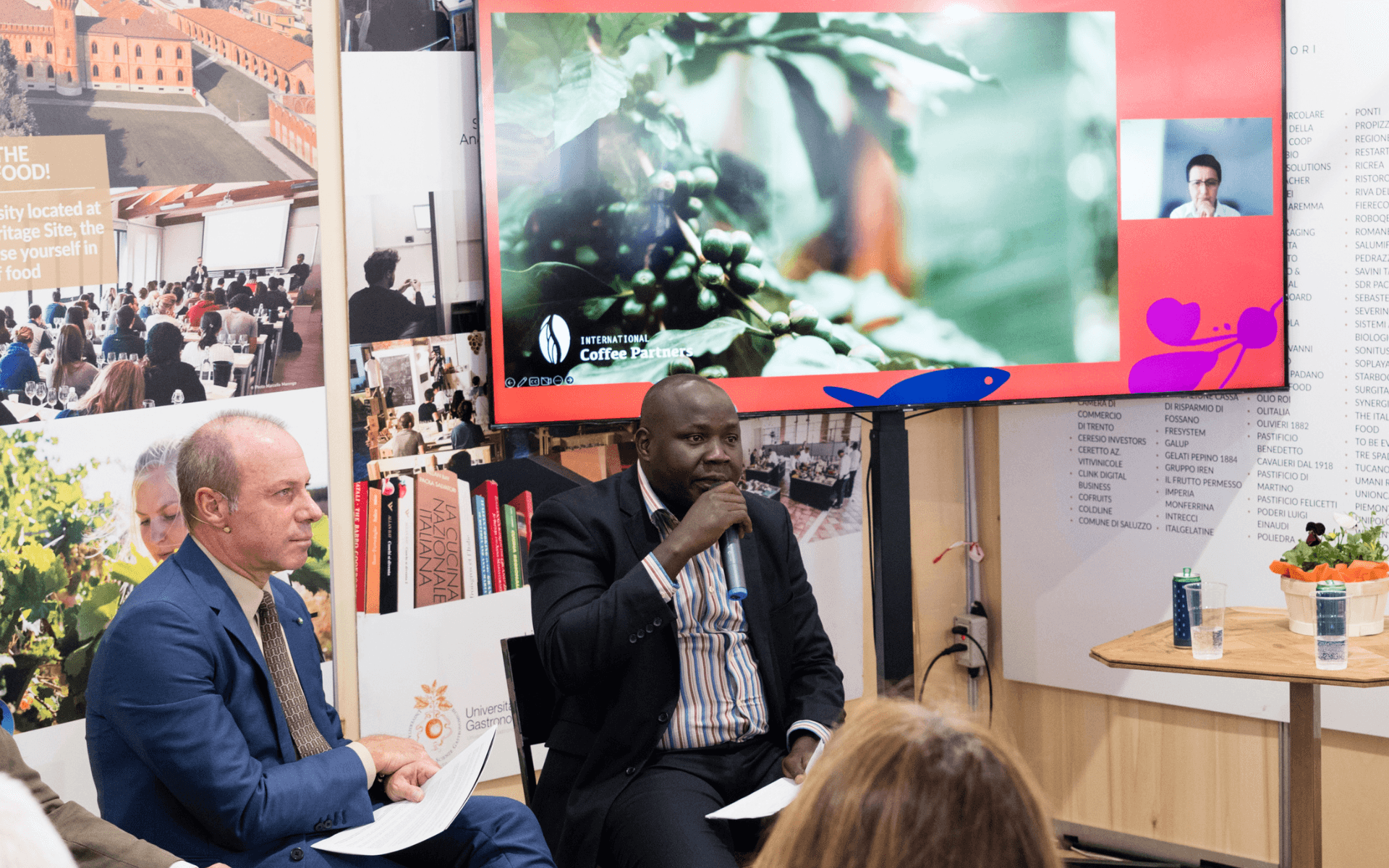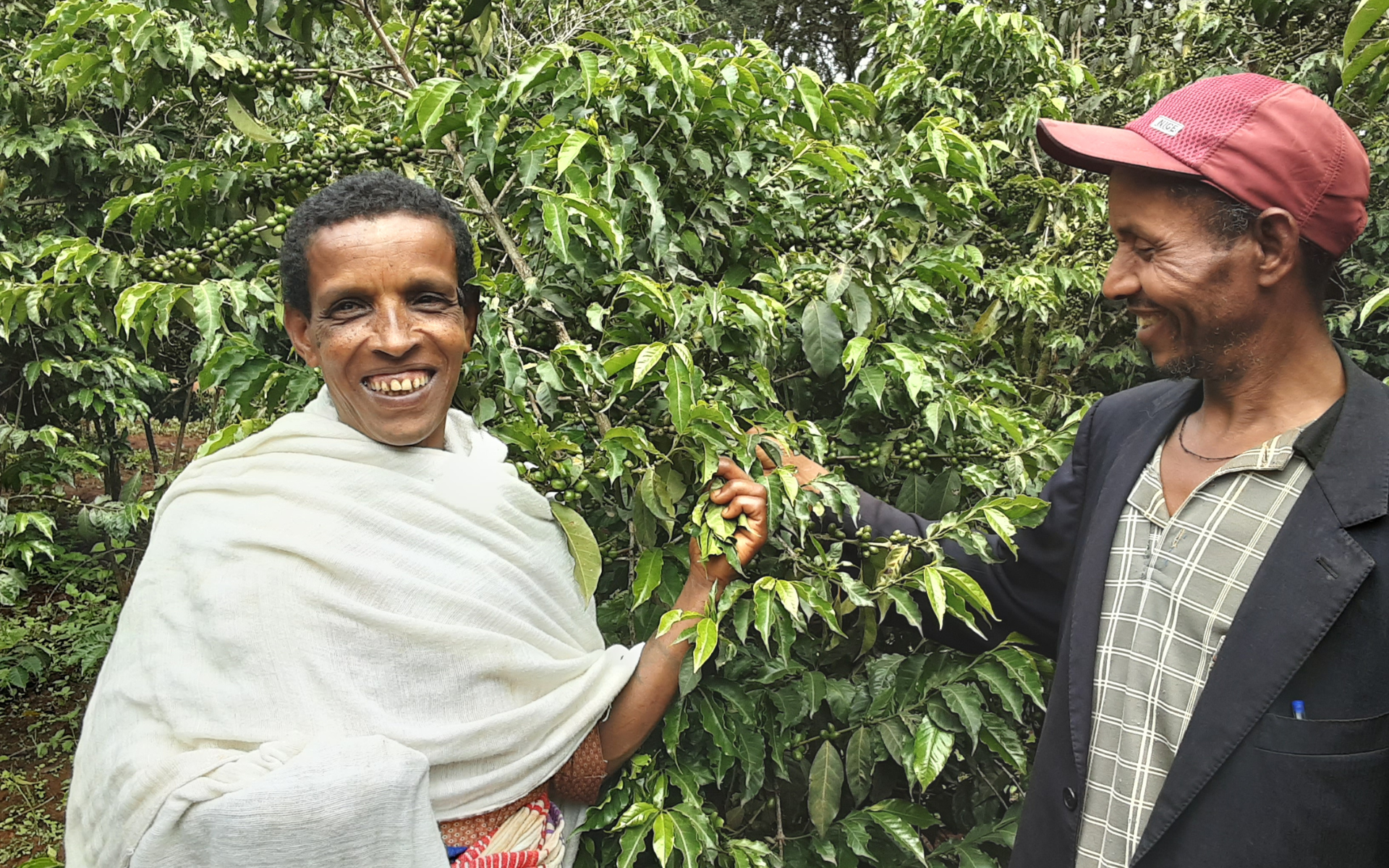
Change Agents Make a Difference in Their Community
Promoting Modern Farm Practices and Gender Equality in Ethiopia – Yetubie and Belete’s life has transformed – their farm work, their standard of living, their relationship, and their family life. Now, they are Change Agents and an example for other households to strive for change. Side by side, picking ripe coffee cherries, they proudly recall how their success came about, how their work used to be, and how it is now.
Yetubie Gashu and Belete Andualem are 38 and 53 years old. They have five children and live in Zaba Tsion Kebele, Jabitehinan Woreda (Woreda means “district” in the Ethiopian Amharic language). When they joined the CAFE project, they were not aware that this would literally change their lives.
Change from traditional to modern farming techniques brings higher yields
“Before we joined the CAFE project, we did all farm work traditionally and at a quite low yield”, remembers Yetubie. “We used to collect the coffee cherries in a basket lined with animal dung and spread it out in the sun on the dirt before packing and storing. These practices decreased the coffee quality, and we were forced to sell it at a cheap rate. We also had a way lower standard of living: We used to sit and sleep on the floor because we didn’t have furniture.”
When Yetubie and Belete started their training in the project, their life began to change. CAFE’s Development Agent Megbaru Ayenew taught the couple to collect the ripe coffee cherries in a clean basket and spread them out in the sun on a raised bed. He also taught them not to collect unripe cherries, to plant agroforestry trees near the coffee plant for shade, to add compost, weeding, and water on time, and other techniques like replanting, mulching, pruning, and stumping. “CAFE helped us a lot by giving us continued training on modern coffee farming techniques. The Development Agent gave us on-field training at the household level and collective training at the Farmer Field School (FFS).” FFS sessions cover about 20 topics that depend on the seasonal crop calendar.
Belete and Yetubie at Mulching

Belete's family at maize trashing

Belete and Yetubie at Drying

Tapping the market leads to a change in the living standard
Megbaru explains, that the project trains the coffee farmers not only in modern farming techniques but also in how to sell quality products in a better market. “What we are doing is asserting the bargaining power of the farmers through the market support program. It enables them to understand better the nuances of the global coffee trade and the practices of buyers. For this, marketing coffees through an established organization is paramount.” Remembering his initial interaction with the couple, Megbaru adds, “When I met them for the first time, their coffee farm was traditional: no spacing, mulching, and shade trees, they used to collect immature berries and spread it out to dry on dirt, and their product was not even enough for their consumption. Now, they can supply quality coffee and sell at premium prices.”
Yetubie reports that after enrolling in the program and acquiring essential skills, with the changes put in place, they have begun to produce better quality coffee. They sold it at a higher price which increased their income. Speaking of the experience, she says, “When our income increased, we bought furniture. Now we sit on chairs, sleep on a bed, renovate our house, and fulfill other basic needs. We bought our son a Bajaj (a three-wheeler used as a taxi), with which he earns his livelihood. We gave our daughter capital and a small coffee farm, and she also started earning a living. Our other children are in the university, high school, and elementary schools. We created a five-year plan and have reached most of its goals! The only thing remaining is buying a car; soon, we will have that too. Thanks to the hard work and the support of the project, we are living our dream.”
In addition to coffee and the cultivation of other crops such as maize, wheat, and pepper, Yetubie and Belete engage in cattle fattening, beekeeping, and dairy production. In the last year alone, the couple earned 200,000 ETB (around $ 4,000) in profit from all agricultural sources of income. The couple did not even know what their income and expense were before the intervention. They say, “now we plan, record our income and expenses and know what we are going to do with our profits.”
Under Ethiopia’s Gender Household Approach (GHA) by ICP’s implementing partner HRNS, families are trained to improve gender relations in a household. It has unique activities such as couples’ seminars (which engage husband and wife simultaneously to encourage open discourse), change agent training, business development, and leadership. Abebanesh Asnake is Ethiopia’s Gender Officer at HRNS. She says, “We train the people about how to share household activities equitably and provide equal access to the family’s resources, how to gain nutrition and food security and resilience to climate change. Yetubie and Belete are in this program and have benefited greatly from it.”
Belete explains that this approach has made life easier for the family, adding, “I look back at our past life experience with some regret.” Yetubie even admitted – rather uneasily, “Before applying gender equality in our home, I didn’t have access to our money, so I would sell some products secretly without telling my husband to cover my expenses. Now even our children have learned to discuss, plan and work together and life in our home is getting better and better.”
Abebanesh added that in the GHA, HRNS implements comprehensive training with the help of an exemplary family. It makes the changes in their livelihood visible and puts them into the position to mentor other households. Yetubie and Belete are now such an exemplary family – they are change agents. And they inspire fellow households to strive for change.

"We want to tell our story and be role models to others. We have shared our experience with 22 people and we encourage them to reach out to four individuals each and help them change as well."
Even if it is not always easy – as they are sometimes struggling with limited access to certain farming materials for example – as facilitators in their FFS group and as change agents for the households around them, Yetubie and Belete always endeavor to improve their efficiency every day and teach those around them.
Yetubie tells proudly, “We have a session within the FFS that meets on the 21st of every month. At that time, we discuss good agricultural practices, gender issues, climate change, and other concerns. We teach the community to plant trees to overcome climate change and soil infertility. We want to teach the whole community to implement gender equality, too. One family at a time, we plan to change a wider community. In the future, we would like to see equal gender participation in every business and household in the whole country because we are change agents!”
